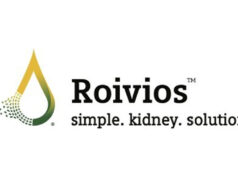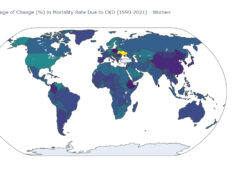 A new study published in Kidney360 has examined the efficacy potential of a new programme aimed at providing “automated, scalable, digital counselling” to chronic kidney disease (CKD) patients. The ODYSSEE Kidney Health (ODYSSEE-KH) programme aims to enhance kidney patients’ health-related quality of life.
A new study published in Kidney360 has examined the efficacy potential of a new programme aimed at providing “automated, scalable, digital counselling” to chronic kidney disease (CKD) patients. The ODYSSEE Kidney Health (ODYSSEE-KH) programme aims to enhance kidney patients’ health-related quality of life.
The team behind the research, including first author Julia V Wong, (University Health Network, Toronto, Canada), conducted an open-label, single-arm pilot study to test the programme, enrolling 29 adult patients with a mean age of 53.5 years (65% of them men), with CKD of categories G3b to 5D across nephrology clinics in Toronto, Canada. The patients gained access to ODYSSEE-KH alongside usual care.
Wong et al explain that their primary outcome was a mental component score (MCS) of the Kidney Disease Quality of Life—Short Form (KDQoL-SF) instrument. They used generalised linear models and pairwise comparisons of mean change scores to assess this. Among a host of secondary outcomes were MCS mental health scale scores, 36-item KDQoL-SF, generalised anxiety disorder scale (GAD-7), Patient Health Questionnaire for depression (PHQ-9), and three-item Revised UCLA Loneliness (RULS-3) scale scores.
The patients in the study ranged from those receiving in-clinic dialysis (n=9) to those receiving home peritoneal dialysis (n=12) and those receiving home haemodialysis (n=8). A total of 24 patients completed the four-month end of study questionnaires, the authors note.
Wong and colleagues found that those patients in the “highest tertile of engagement” with the programme showed “significant improvements on the MCS” compared to those in the moderate tertile group (p=0.01). On the secondary outcomes, they also found dose-response associates for MCS mental health (p<0.05), KDQoL burden on kidney disease (p<0.01), and PHQ-9 (p<0.05).
The authors conclude on the basis of these findings that ODYSSEE-KD “demonstrated feasibility” for use as an aide to self-care for CKD patients, and they argue that it presents a “scalable” option.
“There is evidence of efficacy potential to improve health-related quality of life,” they say, before concluding that “evaluation with a larger sample is warranted”.











